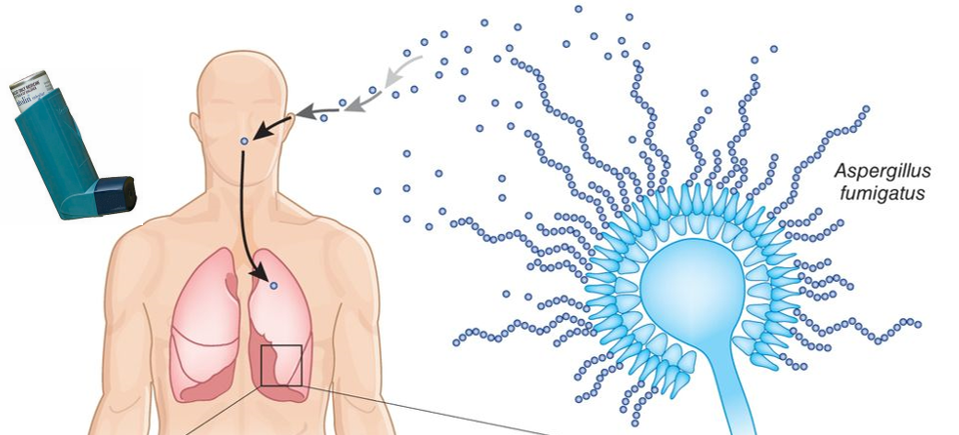SUMMARY: Antifungal treatment can be useful for patients with severe asthma and fungal sensitisation, but this is limited by a lack of prevalence data. Two new papers aim to address this for Sweden (Backman et al) and 13 countries across Africa (Kwizera et al).
Severe asthma is difficult to treat, especially when combined with sensitisation (SAFS) or allergy (ABPA) to fungi such as Aspergillus fumigatus. Such patients require high doses of steroids and frequent hospitalisation, and are more likely to develop serious complications such as bronchiectasis.
However, if the fungal sensitisation is diagnosed (by skin prick testing or fungal-specific IgE immunoassays) then treatment with antifungals can produce better outcomes. Worldwide around 10% of asthma cases are classed as severe, but reliable prevalence data for a fungal component are lacking because population-wide testing has not been carried out.
Dr Helena Backman and colleagues in Sweden followed 830 current asthma patients, of whom around 4-6% had severe asthma (depending on the definition used, see below), of which cases at least 40% were poorly controlled. Severe asthma was associated with neutrophils in the blood, and was more common in women and those >50 years. Data are even more limited for Africa, where asthma is a neglected disease. Dr Richard Kwizera and colleagues in Kampala (Uganda) carried out a systematic review covering 13 African countries. On average they found that ~6% of the population had asthma, of whom around a quarter had fungal sensitisation, mostly to Aspergillus species.
- Read Backman et al (2019) Severe asthma – A population study perspective, Clinical Experimental Allergy
- Read Kwizera et al (2019) Burden of fungal asthma in Africa, PLoS One


